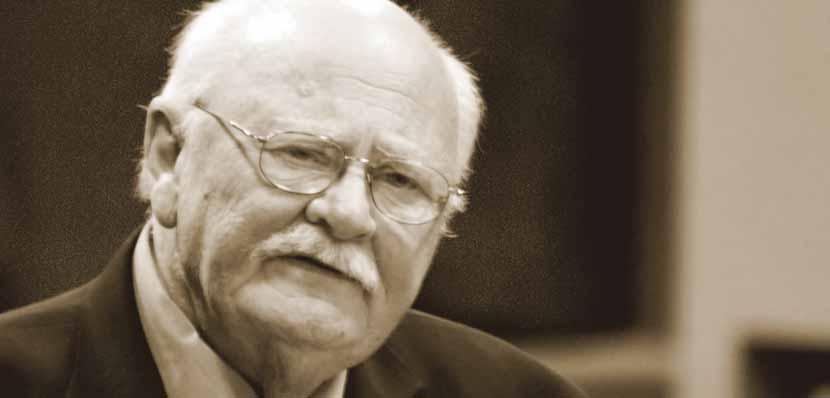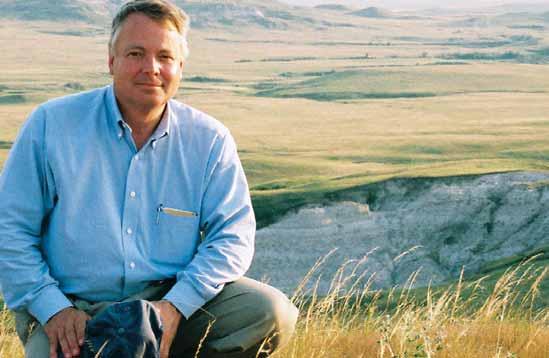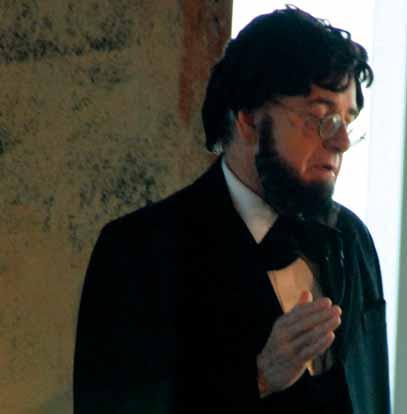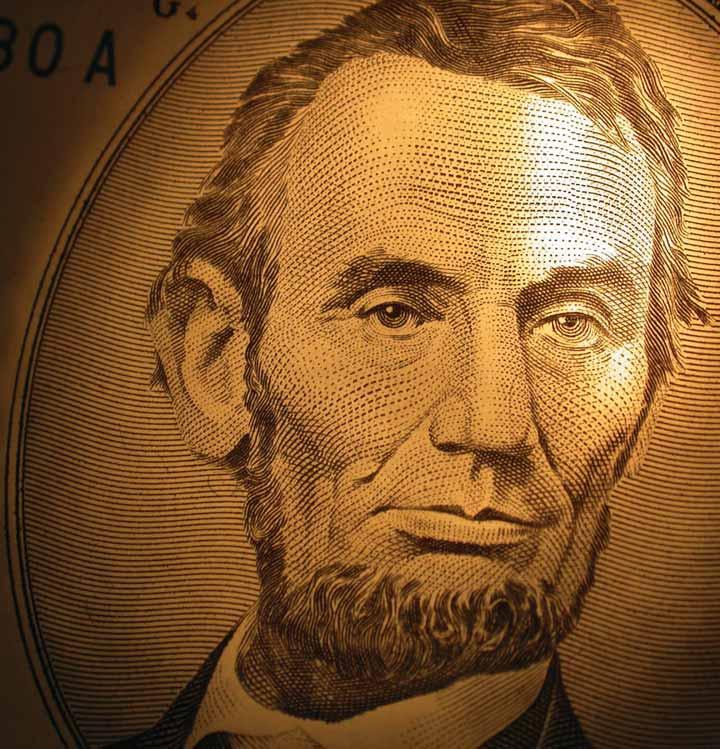
5 minute read
Walt Whitman, America’s Poet (1819-1892
Carrol D. Peterson (right) presents Walt Whitman, the great American poet at the Lincoln Chautauqua. Peterson was a Phi Beta Kappa scholar at the University of Arkansas, where he earned his M.A. and Ph.D. degrees in English. He taught at Doane College in Crete, Nebraska, from 1964 to 2000, has studied at Yale, and served as a visiting professor of English at Kwassui University in Japan.

Advertisement
By Carrol Peterson
No poem has been more memorized by American school children than Walt Whitman’s, “Oh Captain! My Captain!” No poet has set himself more determinedly to become a legend than Whitman. No past American writer continues to receive more critical attention than “the good gray poet.” And no poet from our country’s past seems more relevant to America today than Whitman.
Whitman personally wanted to achieve, first of all, a new poetry for the new world. But he also felt that the nation itself had a purpose to become the exemplary democracy for the world. He believed that America was ordained to spread the gospel of democracy and freedom through the world, a belief that led to war with Mexico in Whitman’s time—a belief that has led to many of America’s continuing international involvements. Whitman is a poet, but he is far from non-political.
Whitman and his father accepted Thomas Paine’s interpretation of history—that the establishment of the American republic was a rejection of the feudal past. This view applied not just to politics, but to literature as well. Though Whitman admired Shakespeare immensely, he felt that even his writings showed some of the faults of medieval feudalism. This view of history explains Whitman’s enthusiasm for progress. His account of his pleasure in riding on trains and his assertion that the poetic muse is to be found “among the kitchenware” (in “Song of the Exposition”) are distinctive. Politics, poetry, and progress are connected in Whitman.
His long poem, “Song of Myself,” is not just a celebration of one life, though it is self-revelatory. Underlying Whitman’s political faith in democracy and his poetic practice is his endless delight in the variety of life. Whitman is the rhapsodist of variety and of whatever is individual. He emphasizes America’s potential—not Tocqueville’s potential for a tyranny of the majority, but the
potential for ever-proliferating and mutually enhancing differentiations. Even his remarkable poems on sex are celebrations of individuality. Whitman is, among other things, a religious seer. He is convinced of the harmony of democracy with nature itself. Politics, poetry, and religion unite.
Yet the work which voices Whitman’s claim to be the poet of democracy, Leaves of Grass, was not a popular success when it was first published in 1855. True, ten days after the book’s publication, Whitman received a letter from the famous Ralph Waldo Emerson, saying, “I greet you at the beginning of a great career,” but Emerson was in the minority. Whitman wrote self-promoting reviews of the book, and the second edition (1856) has the Emerson quote blazoned on the cover. Still, the book did not sell well enough to provide a living for Whitman. Even after many more editions, Whitman admitted in A Backward Glance O’er Travel’d Roads (1889), “I have not gain’d the acceptance of my own time,” and “from a worldly and business point of view Leaves of Grass has been worse than a failure.” But Whitman did not doubt that the America of the future would acknowledge the greatness of his poetry.
The most important influence on Leaves of Grass was Emerson. Whitman had read Emerson’s Essays in 1854, and even earlier he heard Emerson give his lecture “The Poet.” “I was simmering, simmering, and Emerson brought me to a boil,” said Whitman in 1860. Emerson’s transcendentalism, his emphasis on the poet as representative of society, standing “among partial men for the complete man,” and his appeal for a distinctly American literature, all became elements of Leaves of Grass, especially of the long poem, “Song of Myself.”
Whitman’s achievements received little encouragement from the public in his day. Worst of all, the nation’s achievement as exemplary democracy was seemingly destroyed by the Civil War. Whitman was too old to be a soldier, but he spent years in Washington, nursing the dying and the wounded. His war poetry, the greatest literary record of America’s greatest tragedy, is filled with a new sadness and disappointment, yet the mood is never one of despair. Even after viewing such horrible scenes as he records in “The Wound Dresser,” Whitman’s hope survives.
While in Washington, Whitman’s admiration for President Lincoln grew. He noted the burden of sorrow evident in Lincoln’s face when they passed in the street. Finally, Whitman was hit hard by the assassination of Lincoln. His grief, however, did not lead to despondency. Lincoln’s tragic death instead produced two outstanding poems: the often recited “Oh Captain! My Captain!” and the elegy “When Lilacs Last in the Dooryard Bloom’d.” At the end of the war, what the nation could achieve seemed as clear as ever to Whitman. “Affection shall solve the problems of freedom yet,” he announces in “Over the Carnage Rose Prophetic a Voice.”
Whitman’s optimism could not be called glib, however. Having seen the worst of war, he viewed the worst of peacetime American failures in Democratic Vistas (1870): “Never was there, perhaps, more hollowness of heart than . . . here in the United States. . . . We live in an atmosphere of hypocrisy throughout. . . . The depravity of the business classes of our country is not less than has been supposed, but infinitely greater. . . .” Government agencies “are saturated in corruption, bribery, falsehood, mal-administration.” “In business, (this all-devouring modern word, business) the one sole object is, by any means, pecuniary gain.” Whitman concludes that “Our New World democracy . . . is, so far, an almost complete failure in its social aspects. . . . It is as if we were somehow being endow’d with a vast and more and more thoroughly appointed body, and then left with little or no soul.”
Still, Whitman’s hope survives. “The fruition of democracy,” he says, “resides altogether in the future.” It may come after even worse wars and it may take centuries, but it will come. “Those who love each other shall become invincible,” says the “prophetic” voice, and that voice survives today.
FOR FURTHER REFLECTION:
Walt Whitman: Poetry and Prose. The Library of America Edition, 1982. Edited by J. Kaplan.
Gay Wilson Allen. The Solitary Singer: A Critical Biography of Walt Whitman. Revised Edition. New York University Press, 1967.
Daniel Mark Epstein. Lincoln and Whitman: Parallel Lives in Civil War Washington. Ballantine Books, 2004.









